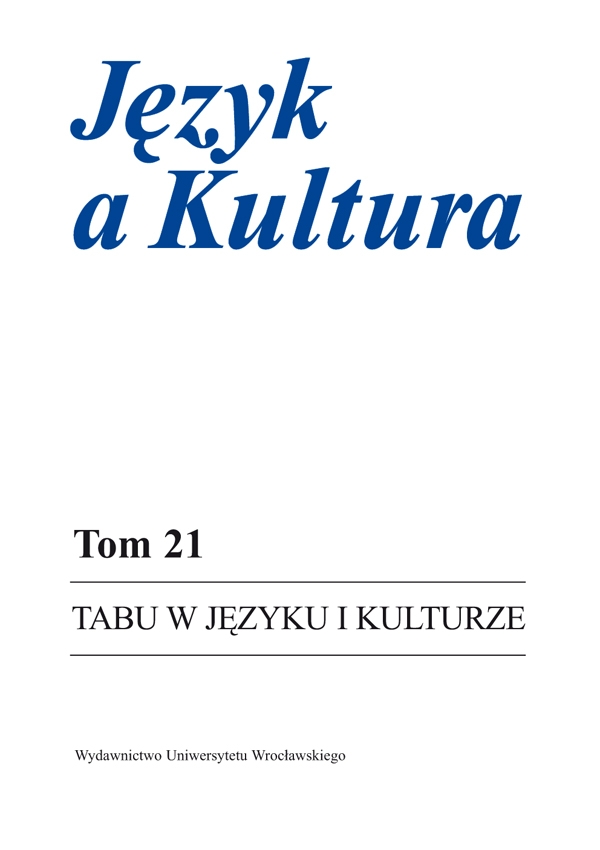

Articles

The declaration of love as a speech act. Taboo – convention – detabooization ?
Thematically and methodologically, the present article inscribes in the space of broadly understood ethnopragmatics Speech Act Theory, stylistic pragmatics, cultural linguistics, interaction theory. The speech act, mentioned in the title, is hereby addressed in the context of the transformations of language, literature and culture. Special attention is paid to the role of conventions literary, communicative, customary, discursive as factors determining patterns of speech concerning love. The analytical material providing the basis for the observation of the language and style of the declarations of love are the belles lettres of various literary periods including genres such as that of historical novel and historical romance as well as contemporary poetry and prose, texts published by media inteviews and text of popular culture songs, fi lm dialogues, Valentine Day rhymes, etc.. The primary goals of the present study are: 1 to illustrate the thesis that the form of the speech act under research significantly depends on cultural conventions and patterns of the “discourse of love,” shaped by the tradition religion, customs, literature, upbringing, etc., which consequently leads to the tabooization of the “language of love” by means of the restriction of its use to the space of intimacy; 2 to illustrate the thesis that today it is possible to talk of the “detabooization” of this space the support to such a claim can possibly be found in the increase of the frequency of the phenomenon called “selling privacy” as well as in the transformations of the style of addressing love in literature and in mass media. The above notwithstanding, however, even the breach of traditional conventions today can be perceived as conventional behavior, as the popular perception of love talk remains unchanged. The status of the “language of love,” largely, is still ascribed to taboo; the declaration of one’s deepest feelings today may seem even more problematic than ever before, since – despite the consumerist ambience of the 21st century Western world – those feelings are “not for sale.”